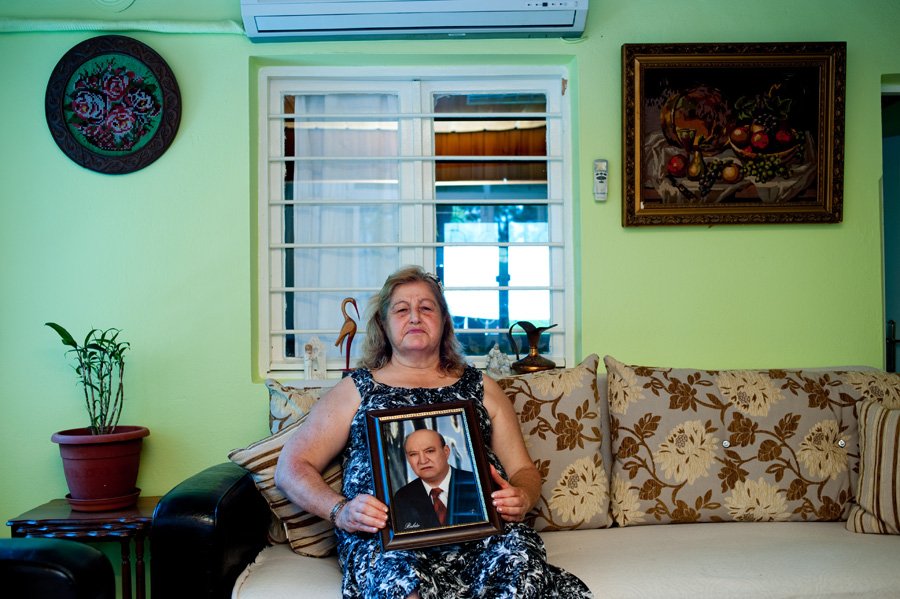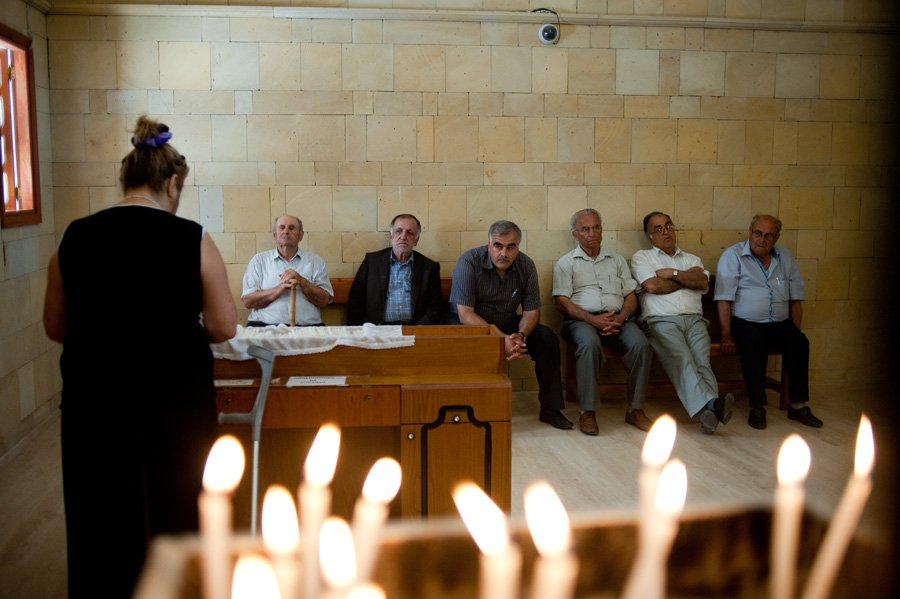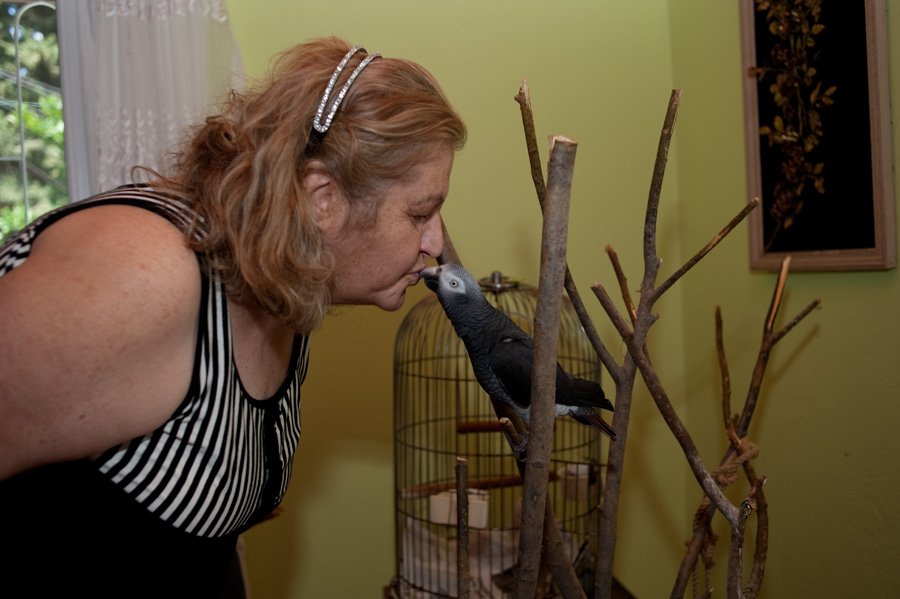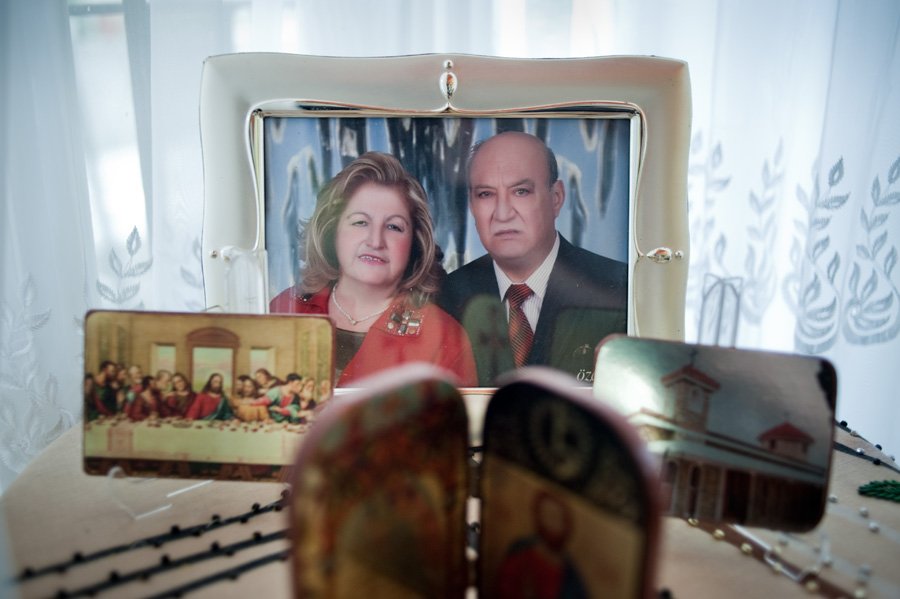 Lora Kartun, 63, holds a photograph of her husband, Can. He died in 2011.
Lora Kartun, 63, holds a photograph of her husband, Can. He died in 2011.
 Lora chooses candles at a Sunday church service.
Lora chooses candles at a Sunday church service.
Lora Kartun, 63, is a nurturer. As she sits on her porch, the breeze ruffling her blond hair, she calls out to her neighbor’s dogs. She explains that one, a scruffy black-and-white mix, has a special spot on the stairs facing her. The dog in question perks up at the sound of her voice then settles on the warm pavement for a nap.
From inside Lora’s lime-green house come the chirps and calls of Tomas, her pet parrot of 18 years. Indulging him, Lora heads inside to assure him of her presence. His caws immediately stop when he sees her. She calls him “sevgilim benim,” “my love.” Tomas touches his orange beak to her lips in a kiss and later echoes Lora’s coughs with unsettling accuracy. Lora responds to him, “geçmiş olsun,” or “get well soon.”
Lora, a native of Vakıflı, has been widowed for the past year and a half. Her husband, Can, a financial consultant, is no longer physically present in her home, but his portrait, and her love for him, remain.
“I was very sad after my husband’s death,” she says. “Even before 40 days, I was paralyzed.”
True to her nurturing nature, Lora was a housewife, caring for her husband and their adopted children. Can, she says, enjoyed life, enjoyed eating and drinking and discussing politics, though his views of Turkey’s political future were pessimistic. He also loved their garden; lush with apricot, peach and lemon trees, it is maintained by outside help in honor of his memory.
Alone now, Lora spends only her summers in Vakıflı. In the winters, she moves to nearby İskenderun, where her children and grandchildren live. She also has friends in the neighborhood, she explains. Her generous spirit, however, extends beyond her comforting circle of family and friends; an Armenian Orthodox Christian, she reaches out to people of all faiths, she says.
“It doesn’t mean you’re narrow-minded because you’re pious.”
And Lora is pious. Her house is subtly decorated with crosses, and she attends services when she can. Vakıflı’s church is only a few buildings away, and it serves as a gathering place for members of the community, which is slowly shrinking.
Unlike her husband, Lora is not pessimistic about the future, both for Turkey and for her village, but she is a realist about Vakıflı’s endurance.
“There are some young people here,” she says. “If they stay here, maybe there’s a future [for the village]. If they decide to leave to continue their studies, maybe there’s not.”
For Lora, though, Vakıflı is and will always be home. While her health is deteriorating – she is diabetic, and her left leg is paralyzed – she remains a member of the community, nestled into her sweet house with her parrot and her memories.
 Lora kisses her parrot, Tomas.
Lora kisses her parrot, Tomas.
 A photograph of Lora and Can sits behind religious icons on a coffee table.
A photograph of Lora and Can sits behind religious icons on a coffee table.